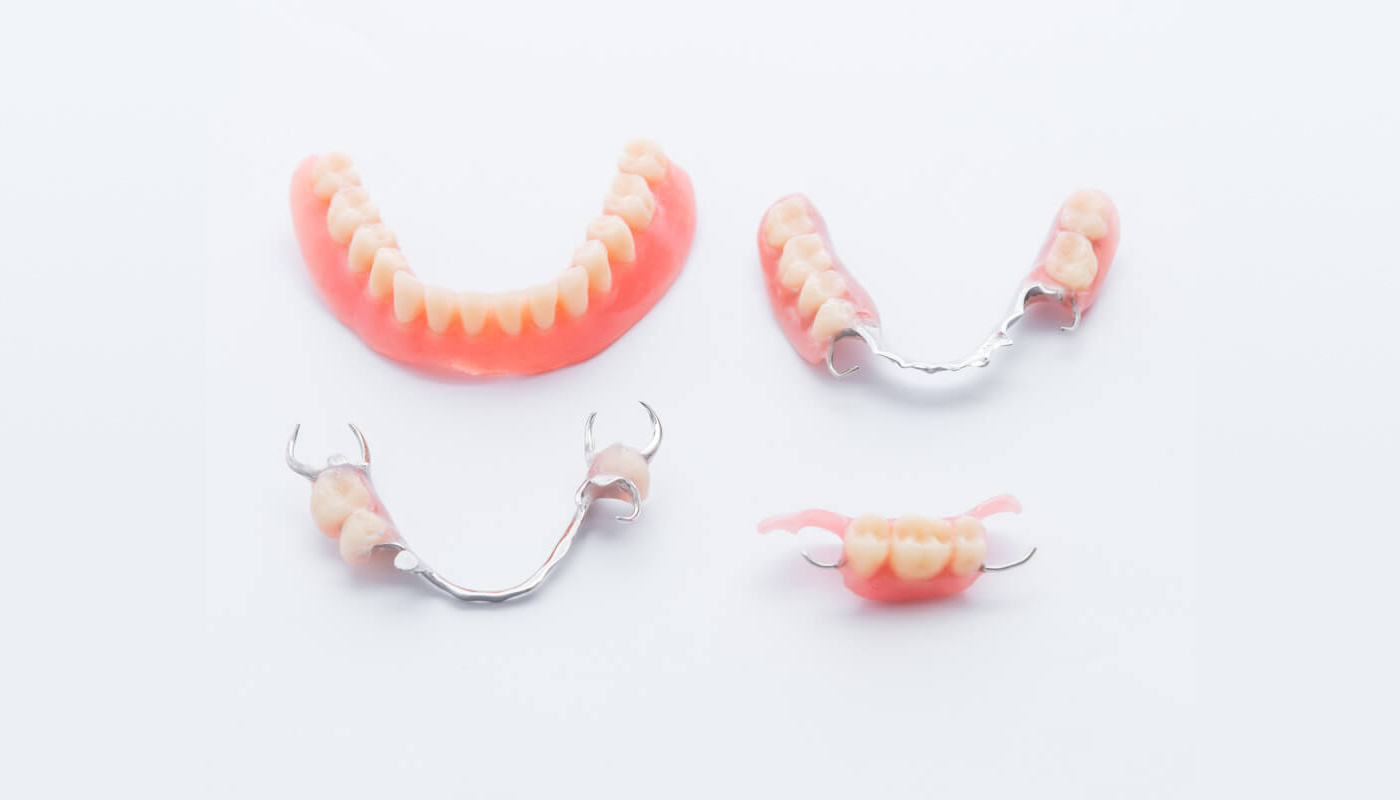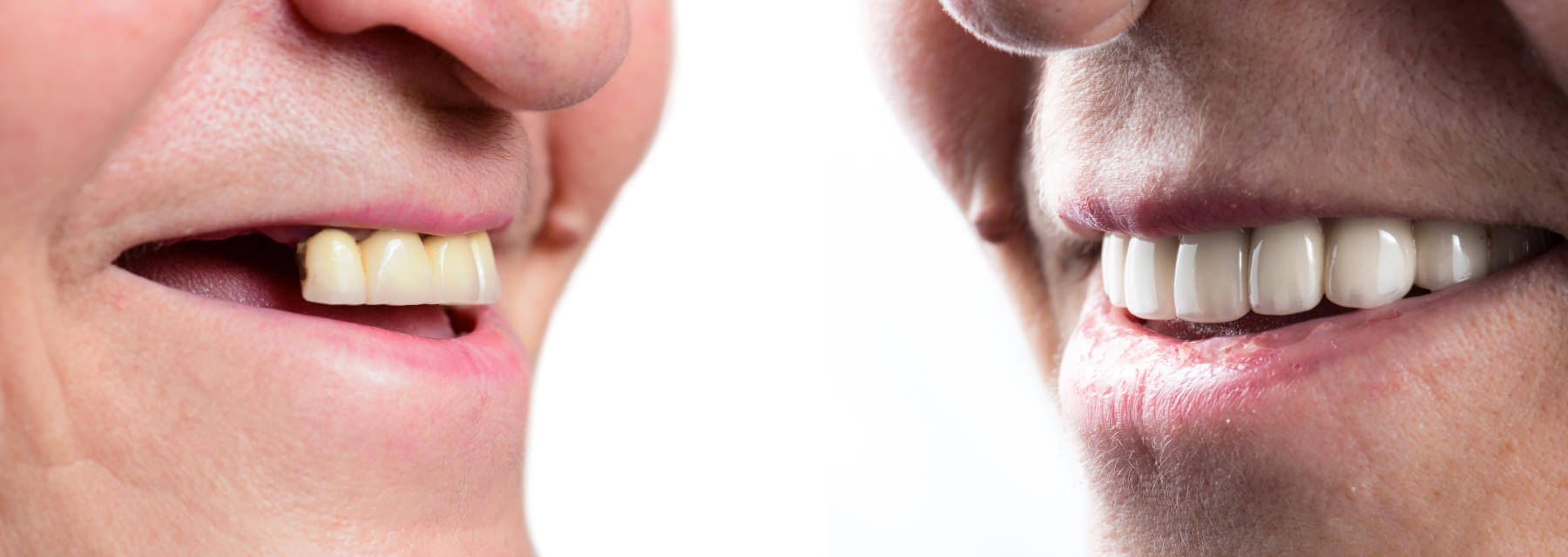Dentures and Dental health
Today, there are many types of dentures available to cater to the diverse needs of patients. Most are typically removable oral devices that take the place of any missing teeth for functional and aesthetic purposes. These removable devices may replace several teeth (partial denture) or the entire upper or lower set of teeth (full denture). Dentures may also be supported by implants or even fixed to the dental implants through titanium components for a more secure fit. In the case of the latter, the denture can only be removed by a dentist.
All of these are permanent prosthodontics devices, lasting for many years with occasional adjustments. For patients who have lost teeth recently or had a fresh tooth extraction, dentists normally recommend temporary dentures to wear for the first 2-3 months. These provide patients with an immediate solution while the gum and bone tissue heal and adjust. Once healing is complete – a process that takes around 6-8 weeks – the shape and size of the gum and bone will have settled enough for the molds to be made for the permanent versions. This interim phase ensures that your permanent device fits as comfortably as possible.

Partial Dentures
Patients with missing teeth who still have some healthy natural teeth may consider a partial denture. These are removable and not only provide users with a more confident smile and improved chewing and speaking functionality, but also prevent shifting of the remaining natural teeth.
Removable partial dentures are individually manufactured for every patient by taking impressions of the mouth interior to produce the best possible fit. Your partial dentures will also be color-matched to the shade of your existing teeth to ensure an even smile.
Full Dentures
Full dentures are necessary for patients who are missing all of their upper or lower teeth, or if all remaining teeth are unhealthy due to gum disease or decay. In the case of the latter, tooth extraction for the remaining teeth will need to be performed before being fitted for the temporary or permanent devices.
Full dentures are also customized for each patient and are created to fit the soft tissue contours of the mouth for maximum comfort. Users not only regain the ability to chew and speak more clearly, but also a more natural appearance in facial features.

How will dentures affect my everyday life?
For patients who have suffered from missing and severely damaged teeth, dentures can be an enormous blessing. Missing teeth can cause a variety of issues including poor chewing ability, unclear speech, shifting of healthy natural teeth, awkward appearance and smile, and even sagging facial muscles. A denture greatly reduces or even eliminates many of these concerns, resulting in improved quality of life.
There is often an adjustment period for new denture patients who may experience some discomfort and a little irritation in the early stages. These issues often resolve with time, but also keep in mind that periodic adjustments by your dentist are sometimes necessary to maintain the best fit as oral structures can shift over time.
Dentists recommend that patients wear their denture throughout the day in order to maximize all of these benefits while removing them during sleep and for brushing. For denture users, maintaining good dental health includes the care of your device which will need to be rinsed and brushed daily and stored in a safe place covered in water.
What are the alternatives to dentures?
Dental implants and bridges are the two primary alternatives to dentures. A bridge may be standard in itself or be supported by a dental implant. Implant supported dentures, also known as fixed dentures, are also an option for some patients. Though the dental implant route has a higher upfront cost than standard dentures, there are some key advantages that make this option well worth considering.
Firstly, a dental implant with a dental crown has the closest appearance, feel and function than any other option to that of a natural tooth. They are also extremely durable, usually lasting a lifetime without requiring any adjustments. This results in a long-term savings that often makes up for the higher upfront cost. Finally, because implants are fused with the jawbone, they are the only option that prevents bone deterioration caused by tooth loss which can lead to facial distortions.